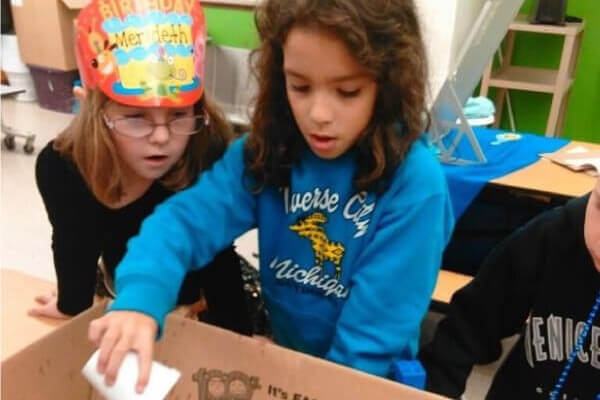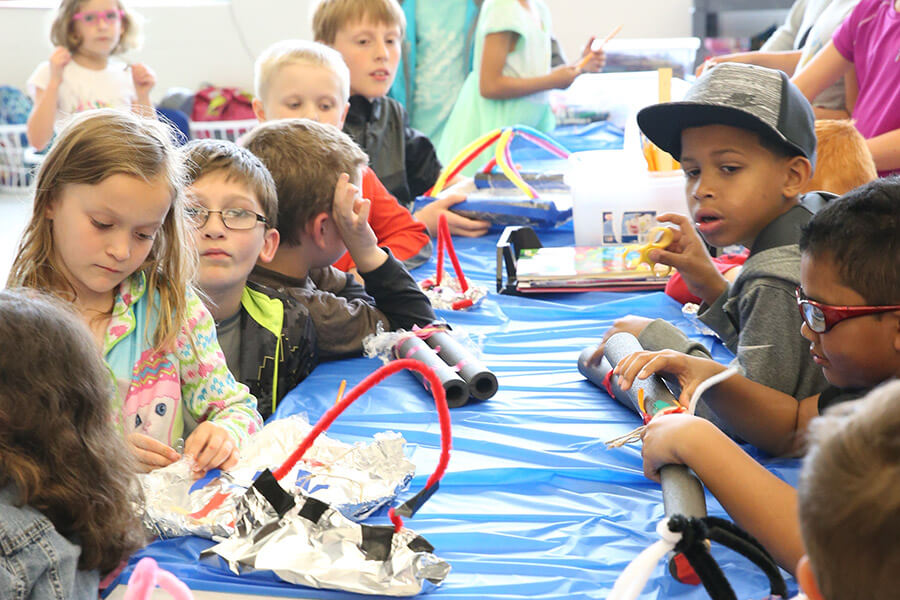
By Dr. Dawn Bridges, Vice President of Educational Affairs
In our last blog post, we discussed the many benefits of empathy for students. While empathy is always important, the topic is particularly relevant today since so many students are still feeling the effects of the pandemic.
Below are several ways to cultivate empathy during the school day — and beyond.
Ways to build empathy
Students need as many opportunities as possible to develop and practice empathy. One easy way for children (and adults) to build empathy is to spend more time with individuals who are different from themselves. Another is to read fiction, which shows different perspectives and places readers in the minds of characters with different thoughts, feelings, and experiences.
During the school day, educators and staff can teach empathy and model what it looks like in practice in the classroom and across campus. We can:
- Show students that we care.
- Create communities where students feel safe expressing their thoughts and feelings.
- Ask open-ended questions, listen, and respond thoughtfully.
- Provide activities designed to teach empathy.
- Actively encourage students to act in empathetic ways.
How SEL can help
Social and emotional learning (SEL) can help students develop the knowledge, skills, and attitudes to feel and show empathy for others. Here are a few examples of core SEL competencies that can improve students’ abilities in this area.
- Social Awareness includes capacities such as taking others’ perspectives, or showing concern for the feelings of others.
- Relationships Skills include the capacity to develop positive relationships, or to stand up for the rights of others.
- Responsible Decision-Making includes capacities such as identifying solutions to social problems, or anticipating and evaluating the consequences of one’s actions.
Teaching empathy beyond the school day
Empathy skills can be taught and reinforced outside of the school day as well.
Right At School’s before and after school programs and summer camps continuously seek to create a warm, welcoming, and inclusive environment that creates a sense of belonging for all students. For example:
- Throughout our curricular activities and daily Town Hall, we facilitate the respectful exchange of diverse viewpoints and experiences to enrich students’ appreciation for others who are different from them.
- Our curriculum intentionally incorporates exposure to diverse cultures and practices, including the celebration of accomplished people from different backgrounds.
In addition, the open sharing of perspectives through daily dialogue, project presentations, cooperative activities, peer mentoring, and public performances continually enriches students’ understanding of their peers and appreciation for the rich diversity around them.
SEL is embedded in every aspect of Right At School programming. For elementary school students, for instance, SEL is intentionally addressed in our “I AM” program. This monthly program is designed to foster positive identity, relationships, and behaviors through a focus on 10 monthly character and SEL traits across the school year (e.g., I AM welcoming, I AM caring, I AM brave). Discussion and activities on these themes help students become responsible, productive, empathetic members of their Right Club community and beyond.
For middle schools, our Right Club Gives Back program helps students develop their leadership potential and make an impact on their community by choosing a local cause and leading their own service project. These projects build and reinforce empathy by giving students the opportunity to work together and care for others’ needs. They also increase community engagement and reinforce real-world connections by allowing students to apply the academic and SEL skills they are learning in a positive way.
Involving families
It can also be helpful to educate students’ parents and caregivers, and highlight the fact that empathy is a skill that can be taught and learned. Share ways in which they can take an active role in teaching, modeling, and reinforcing empathy to complement the activities taking place at school. Research shows that parents who promote and model empathy raise more empathetic children.
Cultivating empathy
Empathy matters — and it shows everyone in the school community that their feelings, perspectives, and experiences matter. When we are empathetic, no one is invisible and no one slips through the cracks. Cultivating empathy in ourselves and others contributes to a more positive classroom, school, and district culture. It builds connections and supports a sense of belonging, which leads to better outcomes for all.

Dr. Dawn Bridges
Dr. Dawn Bridges has over 25 years of experience in the fields of education and professional learning, having held the roles of teacher, reading specialist, special education coordinator, principal, and assistant superintendent for curriculum and instruction. She has dedicated her career to ensuring that all students have the support they need to thrive in and out of school. You can follow Dr. Bridges on LinkedIn and Twitter and subscribe to the RAS blog to keep up with her work.









